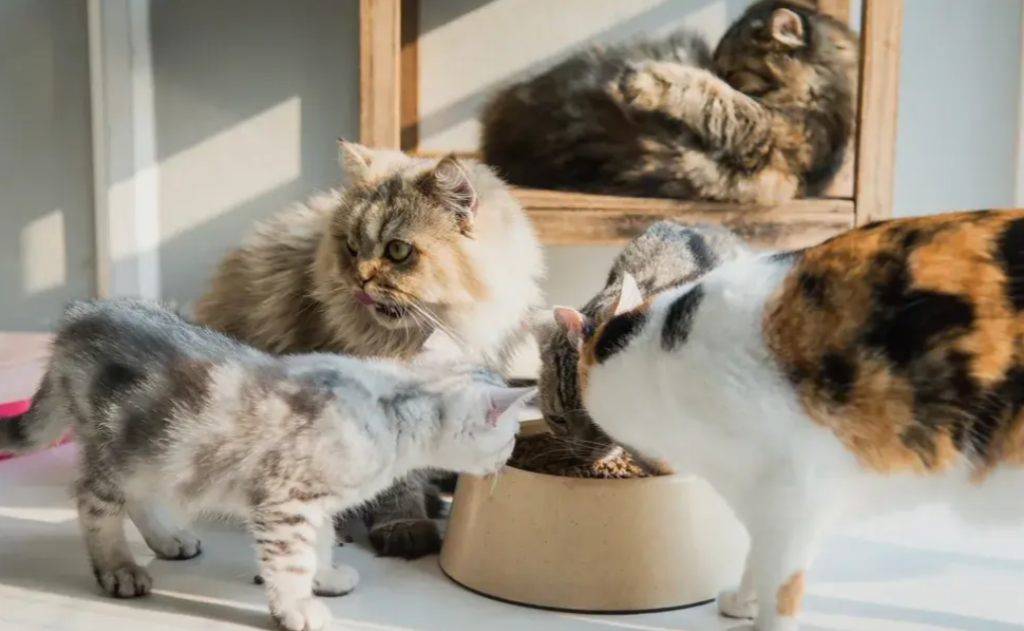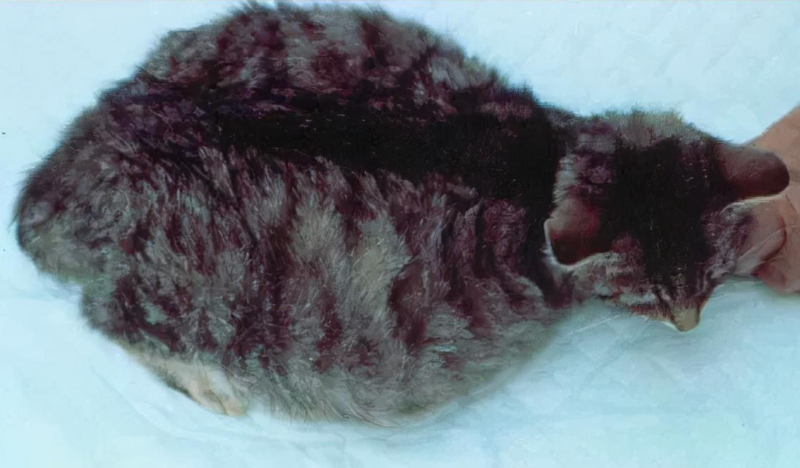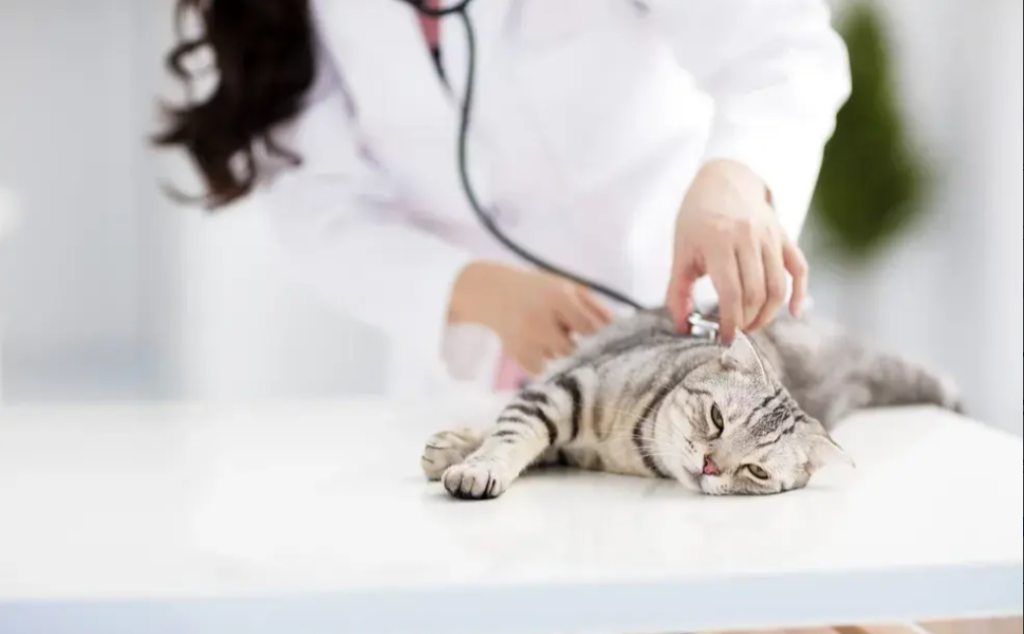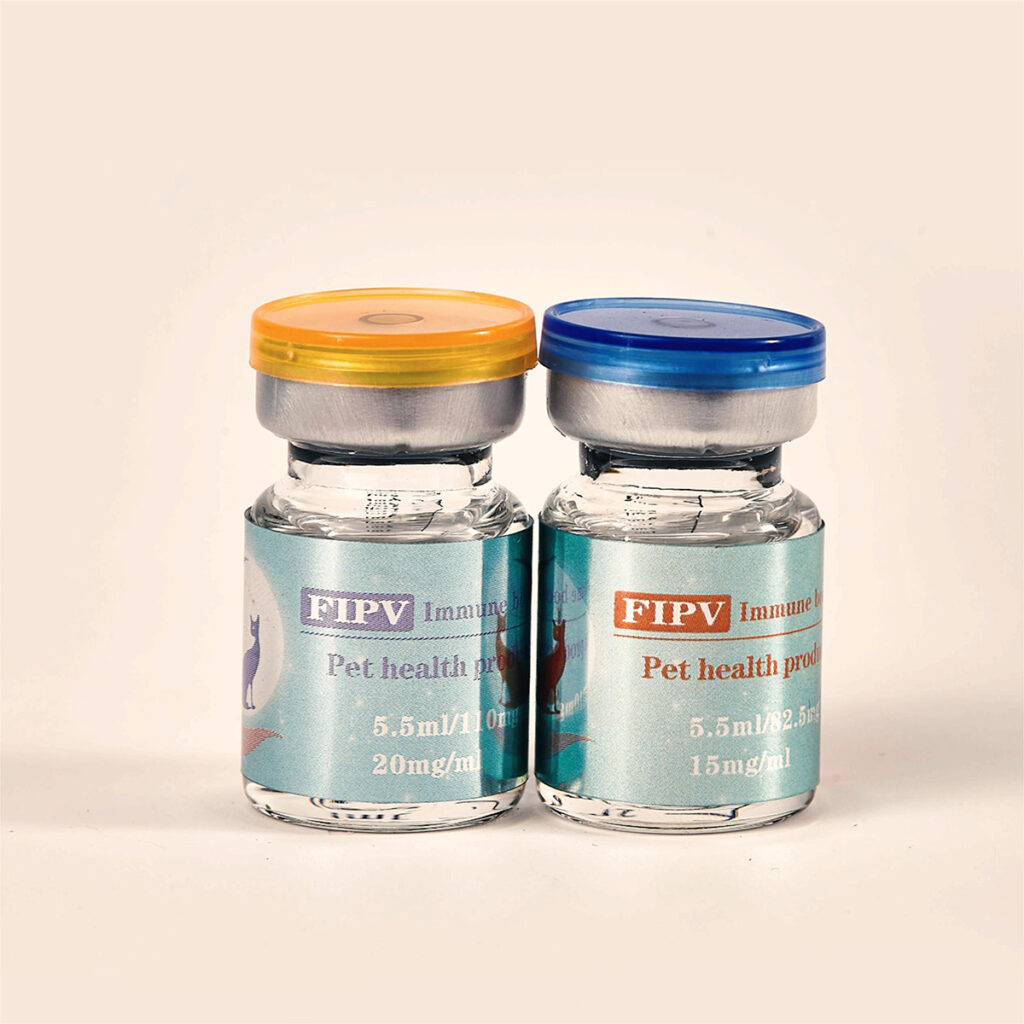What is feline infectious peritonitis?
Feline infectious peritonitis is caused by mutations in the feline coronavirus. Coronaviruses are very common, and only a few of them can be transmitted to cats, while 80% of cats are carriers of coronaviruses.

There are two symptoms of abdominal distension:
- Exudative (wet peritonitis): In the early stages of the disease, careless parents cannot see the symptoms at all. Some cats may suffer from loss of appetite, listlessness, fever, diarrhea, etc. In the later stages, symptoms such as ascites, pleural effusion, jaundice, and anemia will appear, so it is better to diagnose.
- Non-exudative (dry peritonitis): There will be some respiratory symptoms in the early stage, and some kittens will have neurological symptoms, such as head shaking, nystagmus, redness, bleeding in front of the eyes, uveitis, and physical discomfort. Coordination etc.
Is feline infectious peritonitis contagious?
First of all, feline infectious peritonitis is not contagious to humans.
Secondly, according to data, feline infectious peritonitis itself is not contagious. However, the coronavirus that causes FIP is highly likely to be transmitted between cats. Once the cat’s immunity is reduced, the coronavirus may mutate, leading to cat infection. Sexual peritonitis.
If one cat in a group has FIP, then 80% to 90% of the group are already carriers of the coronavirus, but not all of them will get sick. Previous clinical statistics show that only about 6% of cats will become ill. After most cats are infected, the early symptoms are not obvious. Unless they reach the onset stage, it is difficult to detect them.

Prevention of feline infectious peritonitis
There is currently no targeted vaccine to prevent feline infectious peritonitis, so it needs to be prevented through scientific feeding by the owner.
- Reduce the stocking density. Cats living in groups are more likely to be infected with coronavirus. Lowering the risk of coronavirus infection is beneficial to preventing the occurrence of FIP.
- Carry out coronavirus screening on cats living in groups. If they are found to be positive, they should be isolated. If a new cat is brought in, it should be checked first and then checked again after 12 weeks of isolation. If the check is normal, let it be added to the group.
- For female cats that are positive for coronavirus, the litters should be weaned as soon as possible and the female cats and their litters should be isolated.
- Clean the cat litter in time to reduce the spread of viruses. This has a preventive effect on many other parasites and infectious diseases.
- Avoid environmental or dietary changes or other stimuli to reduce stress reactions.
- Disinfect the environment and equipment regularly. Coronavirus is easily eliminated in the environment. Choose a mild animal-specific disinfectant. Be careful not to use 84 disinfectant for humans, which is too toxic.
- Get regular vaccinations and deworming to enhance your cat’s immunity.

Treatment of feline infectious peritonitis
If you notice that your cat has symptoms of feline infectious peritonitis, please take the cat to the hospital for examination immediately. If you are diagnosed with feline infectious peritonitis, the hospital will usually perform an abdominal puncture on the cat to extract ascites. Or collect pathological tissue samples, conduct laboratory tests to confirm the diagnosis, and then provide auxiliary treatment. However, this process will be very painful for the cat, and it may only prolong the cat’s death time, and the cure rate is extremely low.
Generally speaking, 12 weeks (84 days) is a treatment course for FIP. According to the treatment experience and incomplete statistics of some people, the cost of treatment will be around 50,000. Of course, the specific decision still depends on the financial affordability of the owner and the cat’s own resistance.
Feline infectious peritonitis is still a terminal disease in cats that is difficult to cure, but the mortality rate is not 100%. There are still a small number of cats that have recovered under the active treatment of feline managers and doctors. I hope that the cat owners will not give up on their cats easily after discovering that they are suffering from abdominal transmission. Of course, the editor hopes that cats will never get sick.
